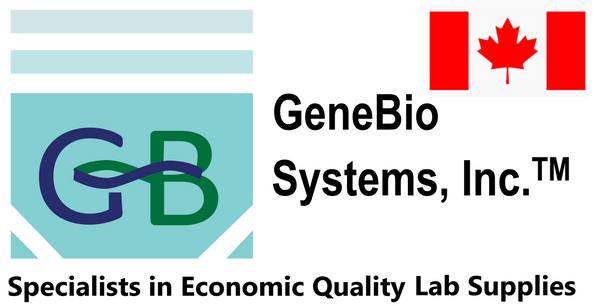Free Shipping
Ordering at $350 or more? Enjoy free shipping, online or offline orders.
Ordering <$350. No problem, find out our low shipping rates and order.
In Ontario, $34.99; Provinces Outside of Ontario $39.99.
Talk to us if you are ordering outside of Canada.
Volume-based automatic saving (VBAS).
-
1. Trazol-our popular RNA isolation reagent, validated by several labs in Canada.
TRAzol RNA Reagent (MagZol Reagent) R1022 Up to 20% off
-
2. Get high performance ECL substrate and save.
-
3. SYBR Green qPCR must be high performance and be cost effective!
PerfectStart® Universal Green qPCR SuperMix AQ602-01
Or save even more with GB-Amp™ Sybr Green qPCR Mix P2092
Up to 40% off
-
4. Magnetic Beads for DNA purification and Size selection
GB-Magic DNA Magnetic Beads N411-01
Up to 45% off
-
5. DNA Ladders with good size range and clear bands
Club G Benefit
1. Buy in Bulk and Save
2. Secure supply and avoid backorders
3. Store with us and save lab space
4. Collect Biobucks points
BioBucks Loyalty Program Sign up
Welcome to BioBucks, the loyalty program designed to reward GeneBio Systems valued customers for their continued support and purchases. This guideline document provides an overview of how the BioBucks loyalty program works, including internal considerations for the implementation of the program.
Custom Baskets for Lab Supplies
Every lab relies on a plethora of critical reagents, equipment, and consumables for their research endeavors. We hear from our customers daily about their struggles with high prices, product performance issues, lack of support, unreliable supplies, or simply the inability to source certain items.
Far too often, sales representatives from suppliers inquire about individual products without considering the comprehensive workflow requirements of your research.
At GeneBio Systems, we pride ourselves on being a local Canadian supplier offering over 180,000 products to assist you. We are dedicated to helping you save money, time, and procure only the supplies that align with your workflow needs.
In pursuit of this goal, we have curated three custom baskets featuring products that span multiple workflow steps. Moreover, we are committed to assembling a customized basket tailored precisely to your application and workflow requirements.
Please refer to the document "Custom Baskets for Lab Supplies" for further details. Choose from our selection of Ready-to-Purchase baskets or allow us to create one exclusively for you, today.
Monthly Newsletters
Current Newsletter
Currently Underway
Previous Monthly Newsletters
Download the December Newsletter here
Download the November Newsletter here
Download the September Newsletter here
Download the August Newsletter here
Download the July Newsletter here
Download the June Newsletter here
Download the May Newsletter here
Download the April Newsletter here
Download the March Newsletter here
Download the February Newsletter here.
Download the January Newsletter here.
Download the December Newsletter here.
Download the November Newsletter here.
